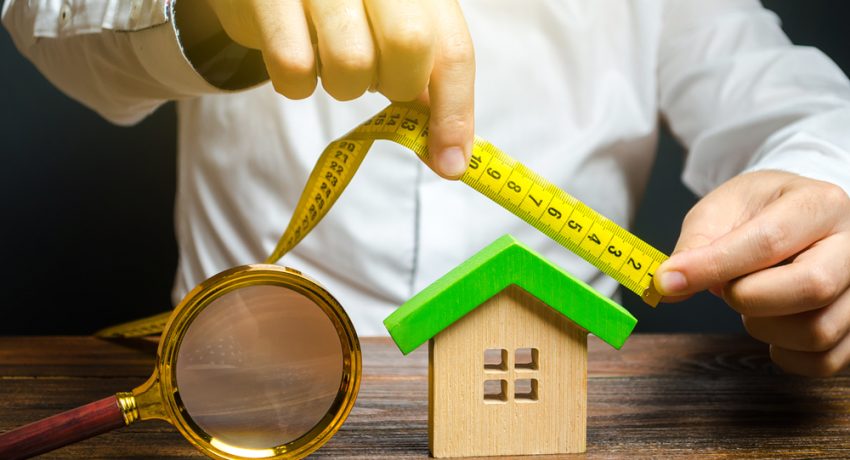The first question in the minds of buyers and sellers is, “How much is the house worth?” Many variables exist that determine the bottom-line value of a home. The smartest place to begin is the fair market value (FMV). FMV is the price house listings would sell for in a logical situation where the buyer and seller have full disclosure and act on their own free will. Discover how to determine the fair market value of a home and get more leads.
The Not-So-Subtleties of Fair Market Value
The concept of fair market value sounds simple despite its complexity. The price a house would command during the current market is the FMV. However, this price can go up and down like a roller coaster based on a variety of factors. For example, a family might be determined to purchase a home within a specific school district, driving up the value of these houses. Or a local crime wave could negatively impact the value of houses located on a particular street. Agents with a finger on the neighborhood pulse and area news trends succinctly understand the not-so-subtleties of fair market value. The bottom line is a home is worth whatever a qualified buyer is willing to pay for it.
Work With Licensed Appraisers
A real estate agent should have at least one licensed appraiser on speed dial. Some agents take appraisal courses to offer this service to clients and potentially generate another source of income. Licensed appraisers can provide essential documentation for financing, closing, and more. Plus, they know the regional and neighborhood markets well enough to help determine a fair listing or selling price when the value is in question. Investing in a professional appraisal can be the secret sauce to landing tough clients.
Use Basic Valuation Tools
In many instances, it could be impractical to hire a professional appraiser. Agents have access to a wealth of resources for home valuations. Rely on public records to make educated assessments. Review deeds, tax assessments, and property transfers to determine listing and sales prices in the area. Consider comparable features, such as whether the home has three bedrooms and two bathrooms. With a dash of mathematical magic, an agent can determine the right pricing in the current marketplace.
Keep Up With the Comparables
Comparable sales help agents figure out the estimated fair market value of a property. Agents can pull all the recent sales in the area of homes in similar neighborhoods with the same basic features. A summary of this data is called a comparative market analysis (CMA). Agents can generate more leads by offering a comparative market analysis to potential sellers. And, these savvy agents are also most likely to negotiate a fair deal for buyers. Use a few resources to come up with a CMA, including:
- turn to MLS listings and recent office listings to get the current sale prices of comparable properties in the neighborhood;
- try to choose homes that are similar in condition, upgrades, and size to do the most accurate relative analysis;
- find at least three comps to use for the analysis, keeping differences and similarities in mind while adjusting the numbers to determine the current fair market values
Data used to determine the comparative value of a home includes the date sold, number of baths and bedrooms, square footage of the house, and the total acreage of the property.
Be a Nosy Neighbor
Agents who understand the local culture are best able to determine fair listing and selling prices. Stay connected with area builders and contractors to remain on top of the latest renovation trends. Understanding what buyers want helps agents showcase these features in available listings. Agents can also make affordable recommendations to help sellers give their homes a “wow” factor based on the latest criteria. Conduct surveys on social media to get free data in real time to find out more about the current market. Better Homes and Gardens® Real Estate agents can tap into a robust social media network to share and gather relevant updates.
Work the Advantages
Connecting the right people is part of being a successful agent. Conduct surveys on social media to determine what buyers and sellers want right now. Focus on unique features that attract a one-of-a-kind buyer, such as an outdoor shower and gazebo or an electric fireplace in a basement media room. Buyers who want a specific place or amenity are often willing to pay more for it, especially if few other similar homes are on the market. An intuitive agent picks up on these little details then uses them to get top dollar for a property.
Reasons to Determine Fair Market Value
Setting a fair listing and selling price are two leading reasons to determine the fair market value of a house. Other reasons may include tax assessments, refinancing, and securing an insurance policy on the house. Agents who can help clients at every step of the journey are sure to get repeat business and referrals.
House listings must be competitively priced to attract attention and sell quickly. Buyers expect to get the best possible deal. To keep all their clients happy, an agent needs to know how to figure out the fair market value of a home. Doing it the right way is a sure road to success and more leads in the future.








